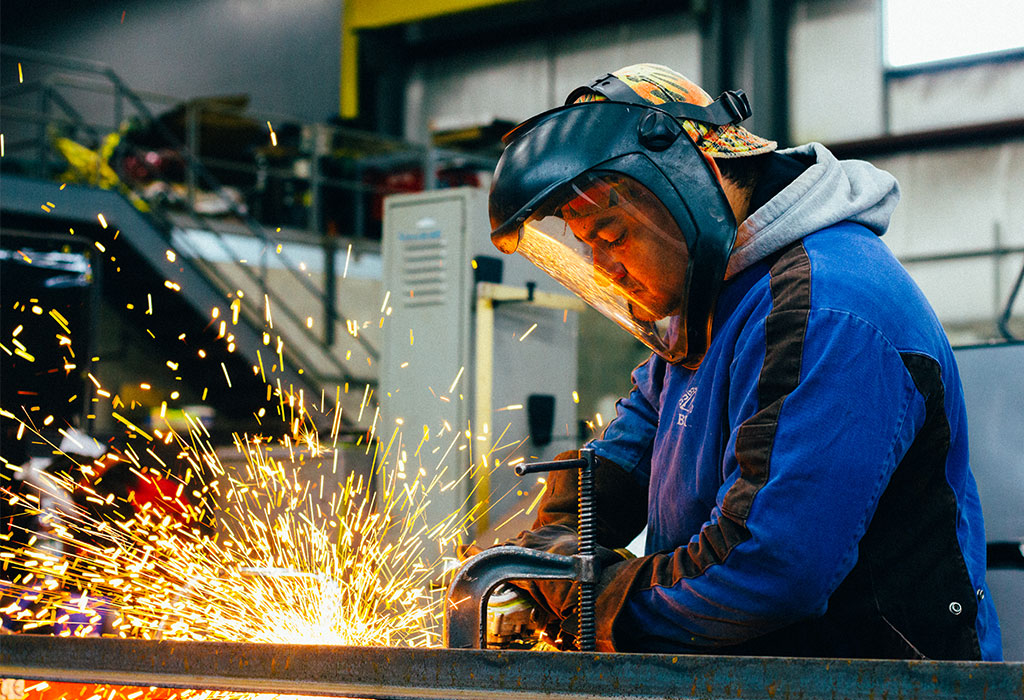Comprehensive Steel Fixing Solutions for Construction Projects
The Ultimate Handbook on Custom-made Steel Construction Solutions for Structural Projects
In the world of architectural jobs, the value of customized steel fabrication solutions can not be overemphasized. From the fundamental understanding of steel construction fundamentals to the complex process of picking one of the most appropriate materials, every action in this trip plays a pivotal role in the utmost success of a job. As we navigate with the intricacies of layout factors to consider, fabrication processes, and quality assurance procedures, a detailed manual serves as a directing light for professionals looking for excellence in steel construction remedies. Keep tuned to uncover the understandings that can change the method structural jobs are come close to and performed.
Comprehending Customized Steel Construction Essentials
Digging right into the fundamentals of custom steel fabrication offers insight right into the intricate process of transforming raw steel right into customized architectural parts. Personalized steel manufacture is a customized manufacturing technique that includes cutting, shaping, and putting together steel materials to create unique structures according to certain task needs. Recognizing the essentials of custom-made steel manufacture is critical for making certain the effective execution of architectural jobs.
The process normally begins with the evaluation of job specifications and style demands. This first phase entails comprehensive preparation and collaboration in between engineers, fabricators, and designers to figure out one of the most ideal technique for producing the steel components. Precision is vital during the fabrication process, as even small discrepancies can affect the architectural integrity of the end product.
Numerous techniques, such as reducing, welding, and shaping, are used to transform raw steel right into the preferred architectural aspects. Knowledgeable producers utilize innovative machinery and tools to make sure precision and consistency throughout the manufacture procedure. Quality control measures are implemented to verify the integrity of the fabricated elements before they are put together on-site, making sure compliance with industry standards and project requirements.
Picking the Right Steel Materials

First and primary, the kind of architectural job and its certain requirements play a crucial role in establishing one of the most suitable steel products. Factors such as the load-bearing capacity, ecological conditions, and desired life expectancy of the structure will determine the grade and type of steel that need to be used.
Additionally, the physical properties of the steel, consisting of weldability, stamina, and ductility, have to align with the job's demands to assure optimum performance and durability (metal fabrication melbourne). In addition, considerations such as corrosion resistance, cost-effectiveness, and availability of the steel materials ought to likewise be taken into account throughout the option process
Layout Factors To Consider for Architectural Tasks
Structural projects require precise focus to create factors to consider to make certain both performance and security are prioritized throughout the building and construction process. When it comes to creating structural tasks, several essential aspects need to be taken right into account to guarantee the success of the endeavor. By very carefully thinking about these elements during the design stage, engineers and designers can guarantee the structural project's success from conception to completion.
Enhancing Manufacture Processes for Performance

Additionally, applying lean production concepts can considerably boost efficiency in steel construction. By decreasing waste, maximizing operations, and improving interaction in between various groups entailed in the fabrication process, tasks can be finished much more swiftly and with better requirements.
In addition, developing an efficient production routine and Our site workflow can assist in focusing on tasks, designating resources successfully, and conference job due dates quickly. By having a clear plan in place and consistently monitoring progress, any potential traffic jams or delays can be recognized and dealt with promptly, making certain efficient and smooth fabrication processes for architectural tasks.
Quality Assurance and Task Administration in Steel Fabrication
To guarantee the effective implementation of steel construction projects, precise quality control steps and reliable job monitoring methods are essential components in keeping accuracy and meeting client assumptions. Quality control in steel manufacture includes strenuous examinations at different stages of the manufacture process to confirm compliance with job specs and market standards. This includes product screening, dimensional checks, and weld inspections to guarantee structural stability and safety and security.
Project administration plays a critical function in coordinating the different elements of steel construction tasks, such as scheduling, resource allowance, and communication amongst staff member. A well-defined project plan with clear purposes, milestones, and timelines helps to keep track of development and resolve any type of possible problems proactively. Efficient interaction in between all stakeholders, consisting of customers, specialists, engineers, and fabricators, is vital for making sure that the task proceeds efficiently and meets the preferred quality requirements.
Final Thought
In conclusion, custom steel construction plays a crucial role in structural jobs by giving tailored remedies making use of the right materials and layout factors to consider. Efficiency in fabrication processes, quality control, and effective task management are essential for successful outcomes. By recognizing the basics of personalized steel construction and executing structured processes, job teams can deliver top Resources quality and durable structures that fulfill the specific requirements of their clients.
Customized steel manufacture is a customized production method that includes cutting, shaping, and setting up steel materials to create special frameworks according to certain task demands.To make certain the effective implementation of steel construction projects, thorough top quality control measures and reliable job monitoring practices are essential parts in maintaining accuracy and meeting client assumptions. Quality control in steel manufacture entails rigorous company website assessments at different stages of the manufacture process to validate compliance with task specifications and market standards (steel fabrication melbourne).Task management plays a vital duty in collaborating the different aspects of steel manufacture tasks, such as scheduling, resource appropriation, and interaction among team participants.In final thought, customized steel construction plays an essential duty in structural projects by offering customized remedies making use of the appropriate products and design considerations